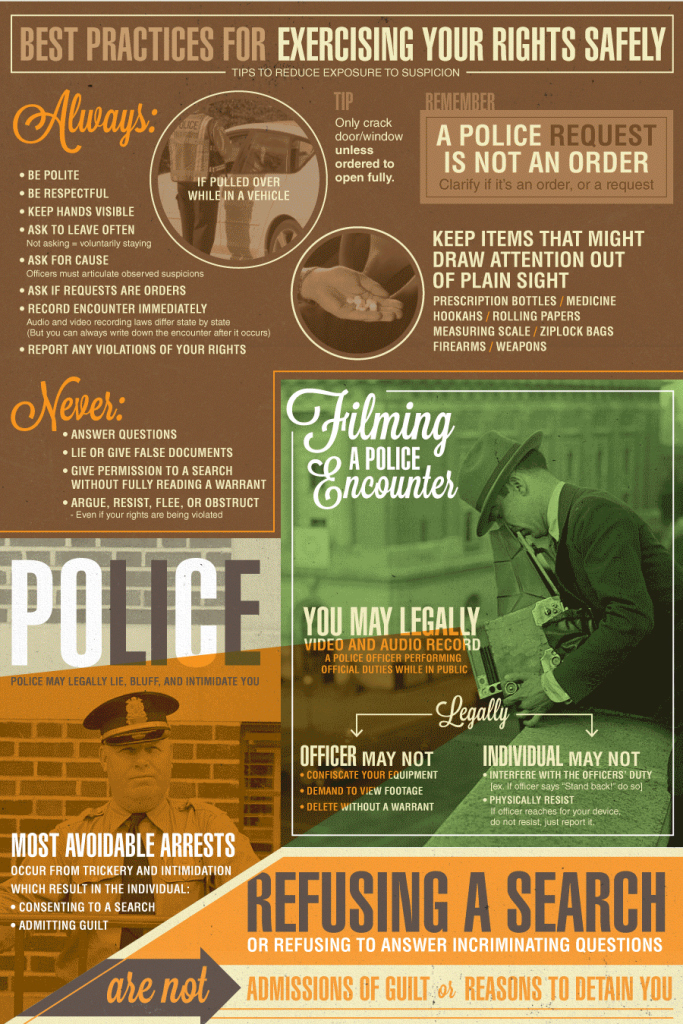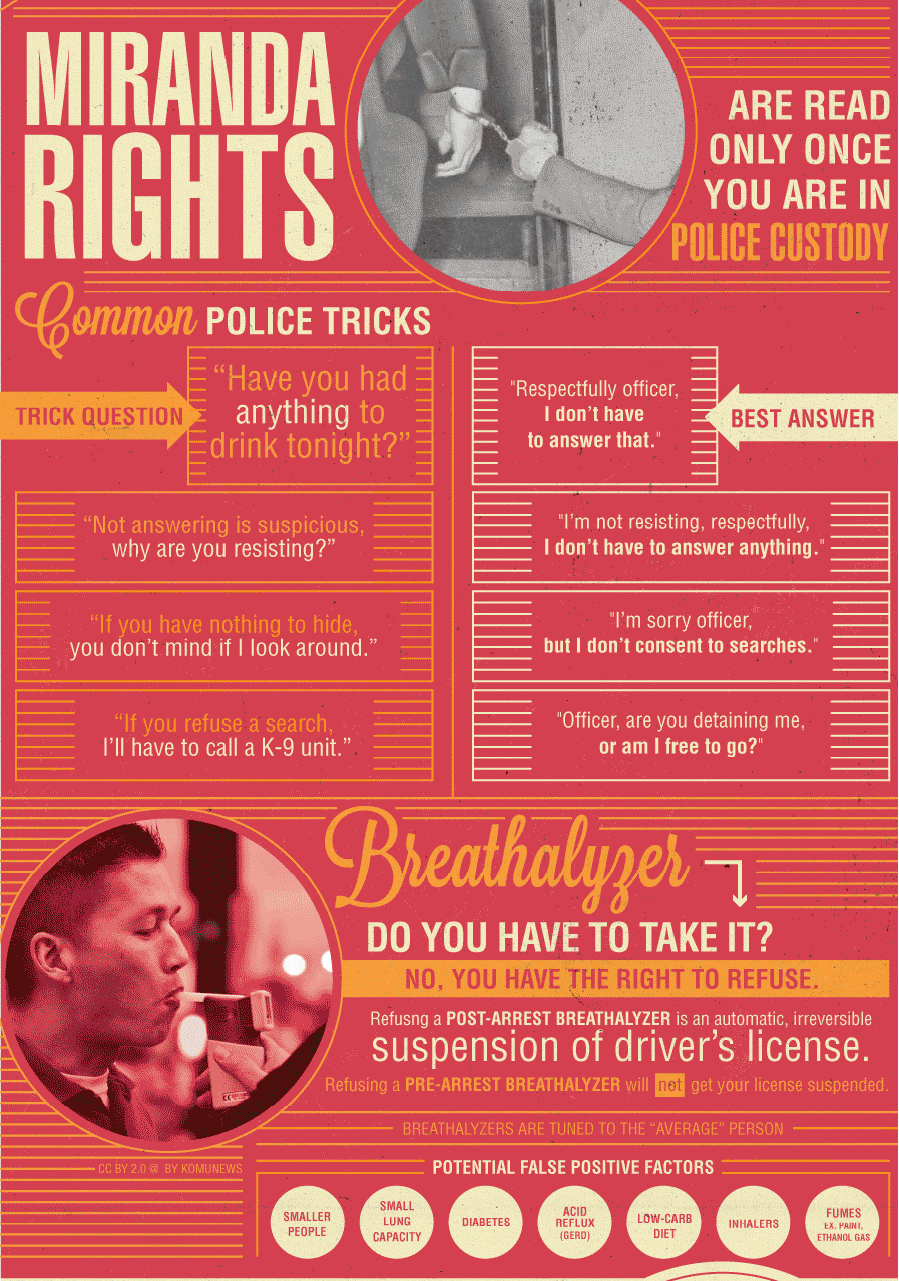
05 Oct Know Your Rights When Interacting With a Police Officer!
Interacting with a police officer can be a stressful and intimidating experience, especially if you’re unsure about the things you can and cannot do or say. Often people allow the police to coerce or manipulate them into admitting fault or guilt simply because they don’t know their rights, or worse, they end up in the back of a police cruiser because they believe they have the right to do anything. By knowing your rights as a citizen, including the often-ignored “Right To Remain Silent,” people can avoid arrest or, when apprehended for a crime, make things easier for themselves by not adding new crimes or volunteering an admission of guilt. To help keep our clients safe, Armstrong Bail Bonds offers the following infographics on the Rights you have a citizen of the United States. Known them, follow them, and above all, stay safe out there.
Best Practices for Exercising Your Rights Safely
 When Interacting with an Officer, Always:
When Interacting with an Officer, Always:
- Be polite
- Be respectful
- Keep your hands visible
- Ask “May I leave now?” often
- Ask “Is that an order?” when asked to do something (And if it is, comply)
- Record encounters immediately (Laws about audio and video recording vary from state to state, but you can always write down details about the incident afterward)
- Report any violation of your Rights immediately
When Interacting with an Officer, Never:
- Answer questions
- Lie or give false documents
- Give permission to a search without fully reading the warrant
- Argue, resist, flee, or obstruct
If Pulled Over by a Police Officer:
- Only crack the door or window unless ordered to open it fully
Tips For Filming Police Encounters:
- You may legally film and audio record a police officer performing official duties in a public space
- An officer many not legally confiscate your equipment, demand to view the footage, or delete footage without permission
- An individual may not interfere with an officer on duty, ignore an officer’s order when filming, or physically resist if an officer attempts to confiscate a recording device
Other Valuable Tips:
- Most avoidable arrests occur from an individual consenting to a search or admitting guilt as a result of trickery or intimidation
- A police officer may legally lie, bluff, and intimate you to force an admission of guilt
- Refusing a search or refusing to answer incriminating questions are not admissions of guilt or a reason to detail you.
Tips on Miranda Rights, Police Tricks, and Breathalyzers
 Your Miranda Rights are Only Read Once You Are in Police Custody
Your Miranda Rights are Only Read Once You Are in Police Custody
Know These Common Police Trick Questions:
Trick Question: “Have you had anything to drink tonight?”
Best Answer: “Respectfully officer, I don’t have to answer that.”
Trick Question: “Refusing to answer my question is suspicious. Why are you resisting?”
Best Answer: “I’m not ‘resisting,’ respectfully. I don’t have to answer anything.”
Trick Question: “If you have nothing to hide, you won’t mind if I look around, will you?”
Best Answer: “I’m sorry officer, but I don’t consent to searches.”
Trick Question: “If you refuse a search, I’ll have to call a K-9 unit.”
Best Answer: “Officer, are you detaining me or am I free to go?”
Breathalyzer Tips
- You have the right to refuse a breathalyzer, however:
- Refusing a post-arrest breathalyzer is an automatic irreversible suspension of driver’s license.
- Refusing a pre-arrest breathalyzer will NOT result in a suspended license.
- Breathalyzers are tuned to the “average person.” Therefore, smaller-than-average person, small lung capacity, acid reflux, low-carb diets, inhalers, and fumes can all result in a false positive for Driving While Intoxicated.
Disclaimer: While the professionals at Armstrong Bail Bonds are familiar with the law, we are not lawyers or law professionals. For legal advice, please consult a licensed attorney.

